Psychology > EXAM > MENTAL HEALTH QUESTIONS AND ANSWERS (All)
MENTAL HEALTH QUESTIONS AND ANSWERS
Document Content and Description Below
1.Which biomarkers are associated with the development of Alzheimer’s disease (AD)? amyloid-beta plaques, tau neurofibrillary tangles, and neuronal damage.Other biomarkers, including lower levels o... f metabolites such as histamine, asparagine, aspartate, and citrulline (all involved in regulating inflammation). 2.How does vascular neurocognitive disorder differ from NCD caused by AD? The cognitive symptoms in vascular NCD are caused by significant cerebrovascular disease. When blood flow in the brain is impaired, progressive intellectual deterioration occurs. Impairment may be located in large vessels or microvascular networks, and symptoms vary depending on the type, extent, and location of vascular lesions. More abrupt onset and changes in thought processes occur in more noticeable downward “steps”. 3.What is pseudodementia? Depression 4.What is the priority patient outcome in caring for patients with NCDs? Safety Chapter 23 1.What are the physical consequences of thiamine deficiency in chronic alcohol use? Wernicke’s encephalopathy represents the most serious form of thiamine deficiency in alcoholics. Symptoms include paralysis of the ocular muscles, diplopia, ataxia, somnolence, and stupor. If thiamine replacement therapy is not given quickly, death will ensue. 2.Define tolerance as it relates to physical addiction to a substance. Withdrawal syndrome upon cessation of drug use. Tolerance happens when a person no longer responds to a drug in the way they did at first. So it takes a higher dose of the drug to achieve the same effect as when the person first used it. 3.Describe two types of toxic reactions that can occur with the use of hallucinogens. Two types of toxic reactions are known to occur. The first is the panic reaction or “bad trip.” Symptoms include intense anxiety, fear, and stimulation. The individual hallucinates and fears going insane. Paranoia and acute psychosis may be evident. The second type of toxic reaction to hallucinogens is the flashback. This phenomenon refers to the transient, spontaneous repetition of a previous LSD-induced experience that occurs without taking the substance. [Show More]
Last updated: 2 years ago
Preview 1 out of 4 pages
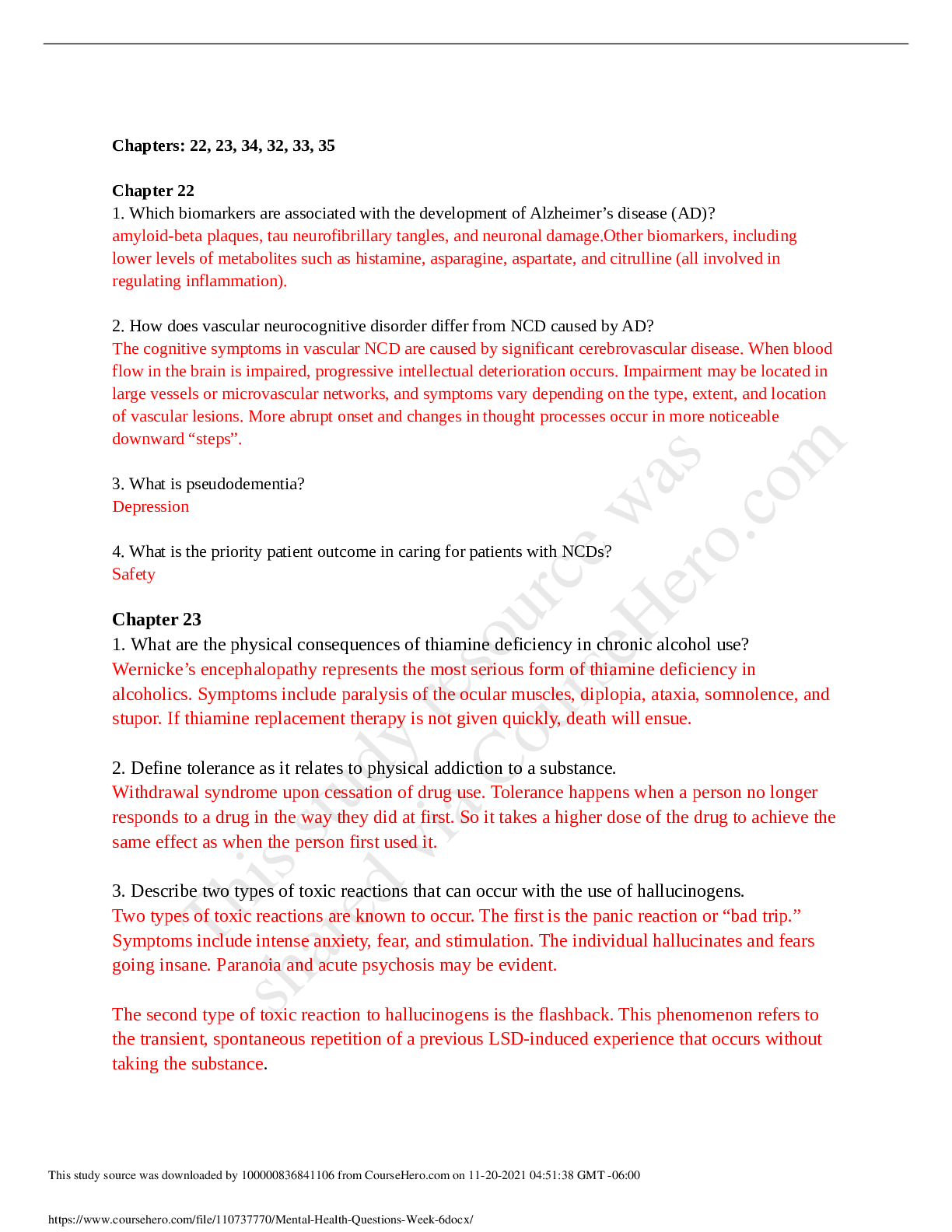
Buy this document to get the full access instantly
Instant Download Access after purchase
Buy NowInstant download
We Accept:

Reviews( 0 )
$10.00
Can't find what you want? Try our AI powered Search
Document information
Connected school, study & course
About the document
Uploaded On
Nov 21, 2021
Number of pages
4
Written in
Additional information
This document has been written for:
Uploaded
Nov 21, 2021
Downloads
0
Views
83


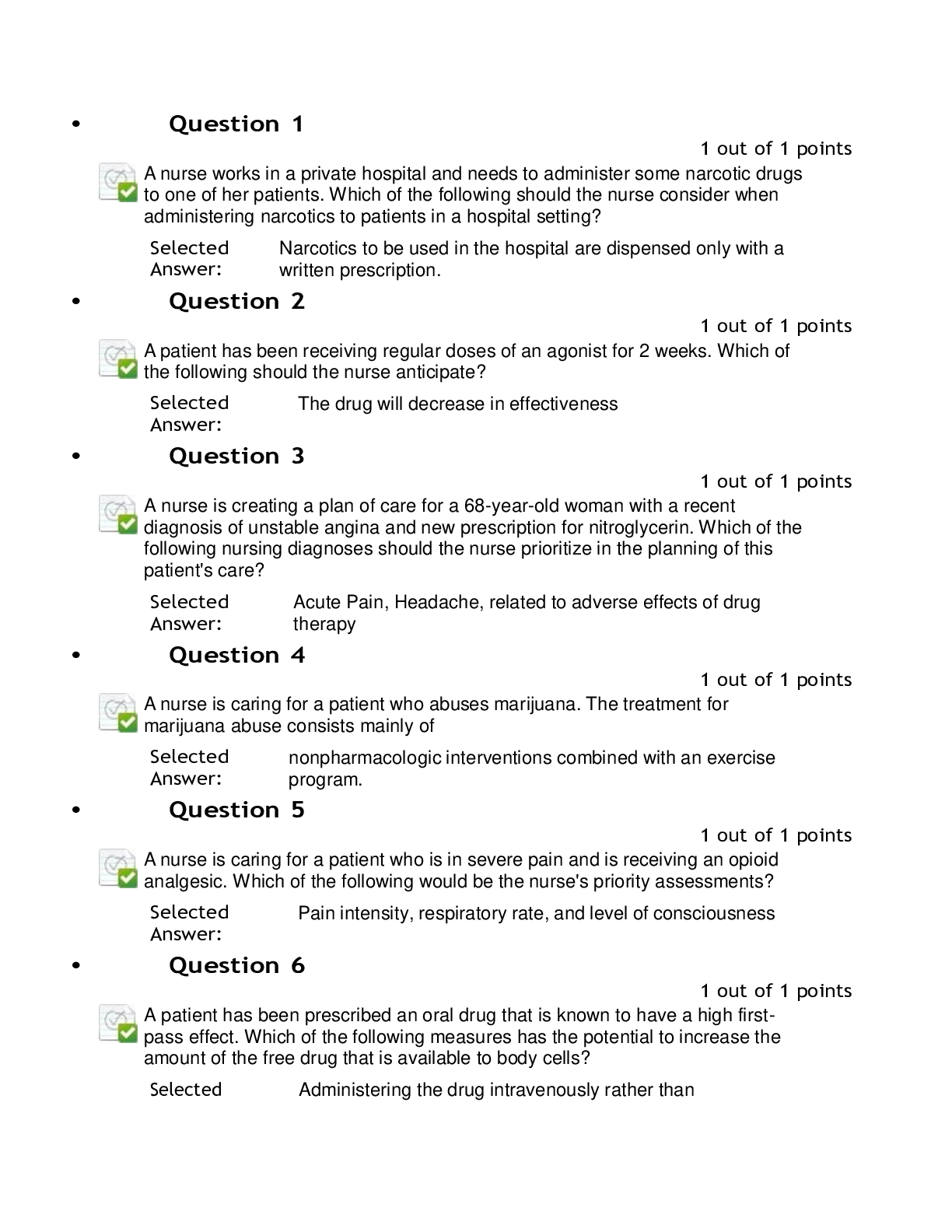
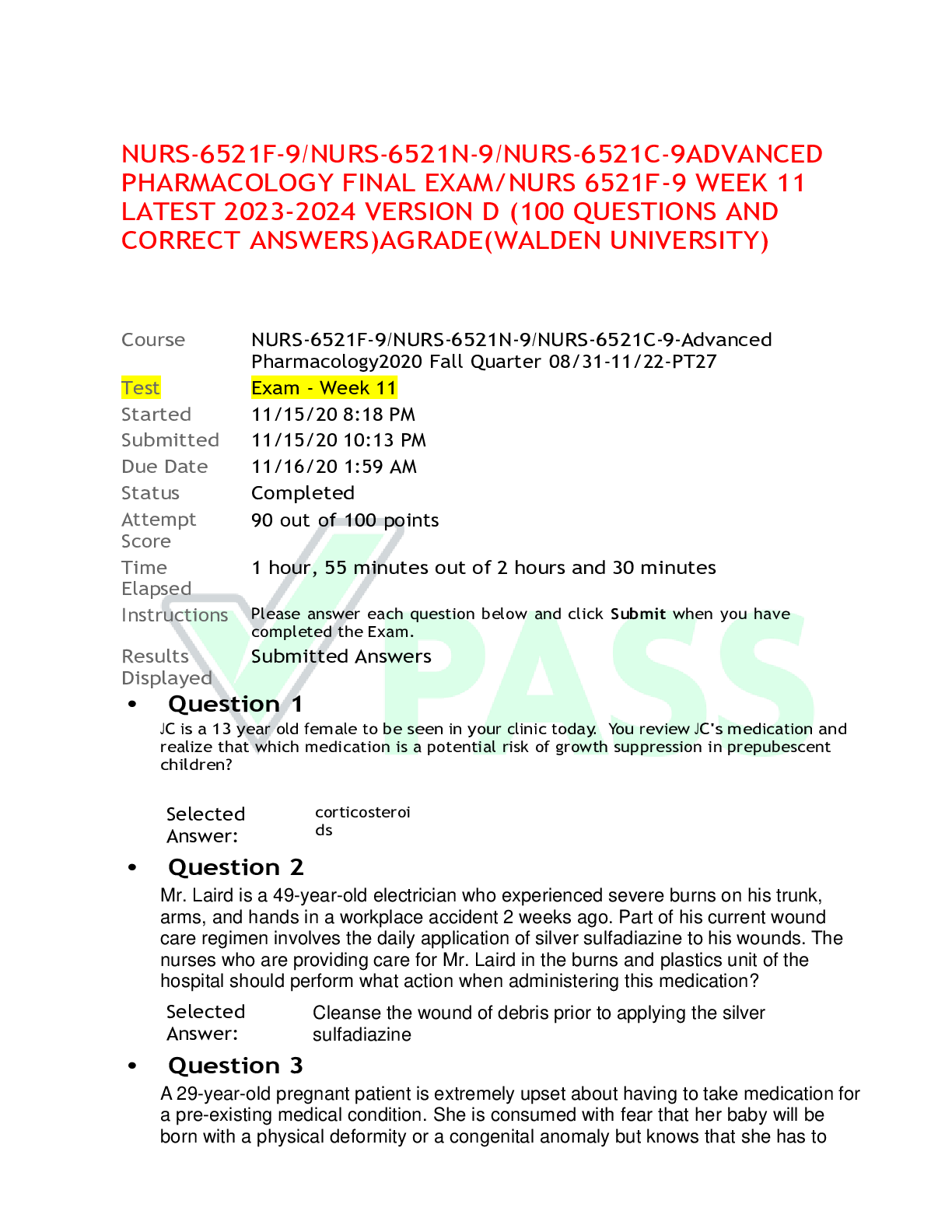
 (1).png)
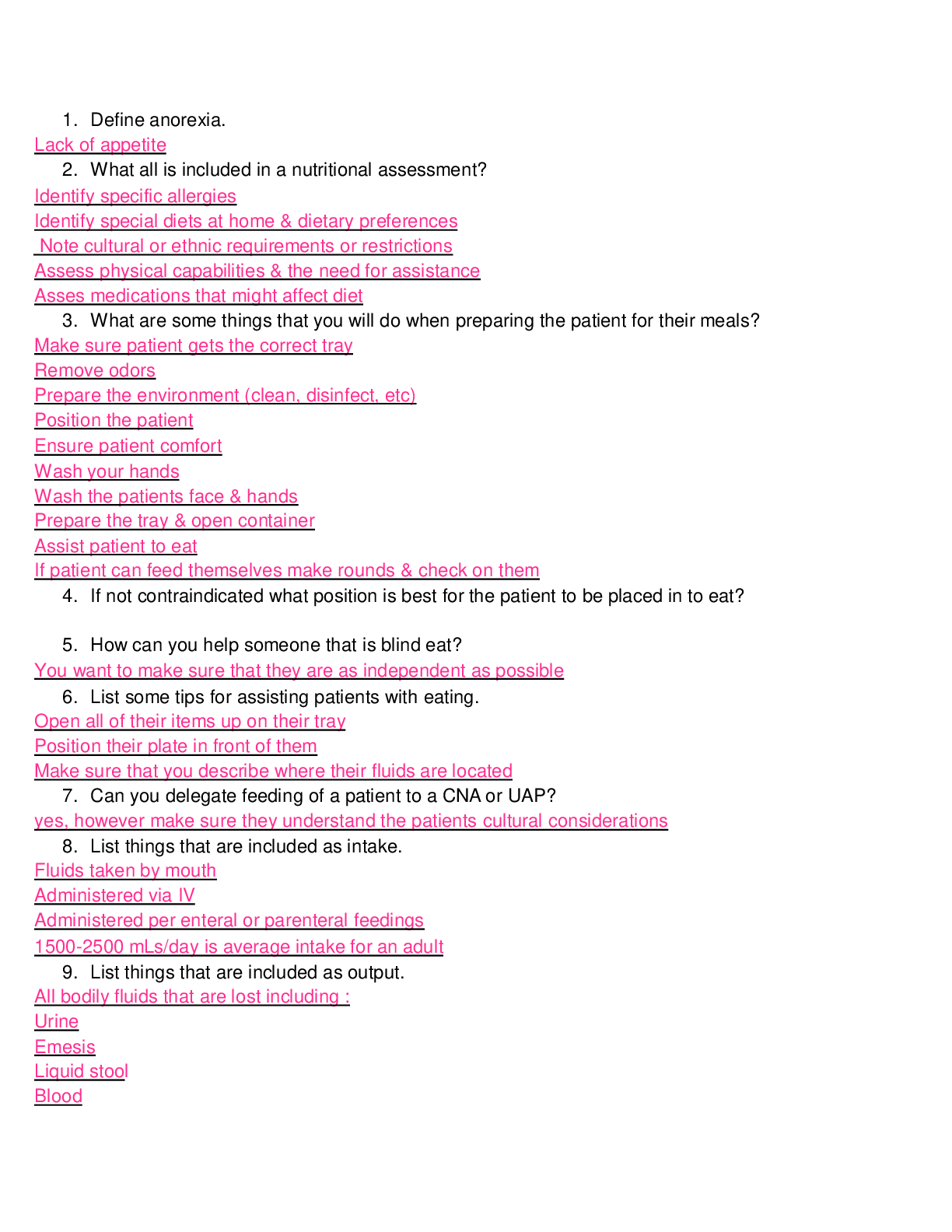
 (1).png)

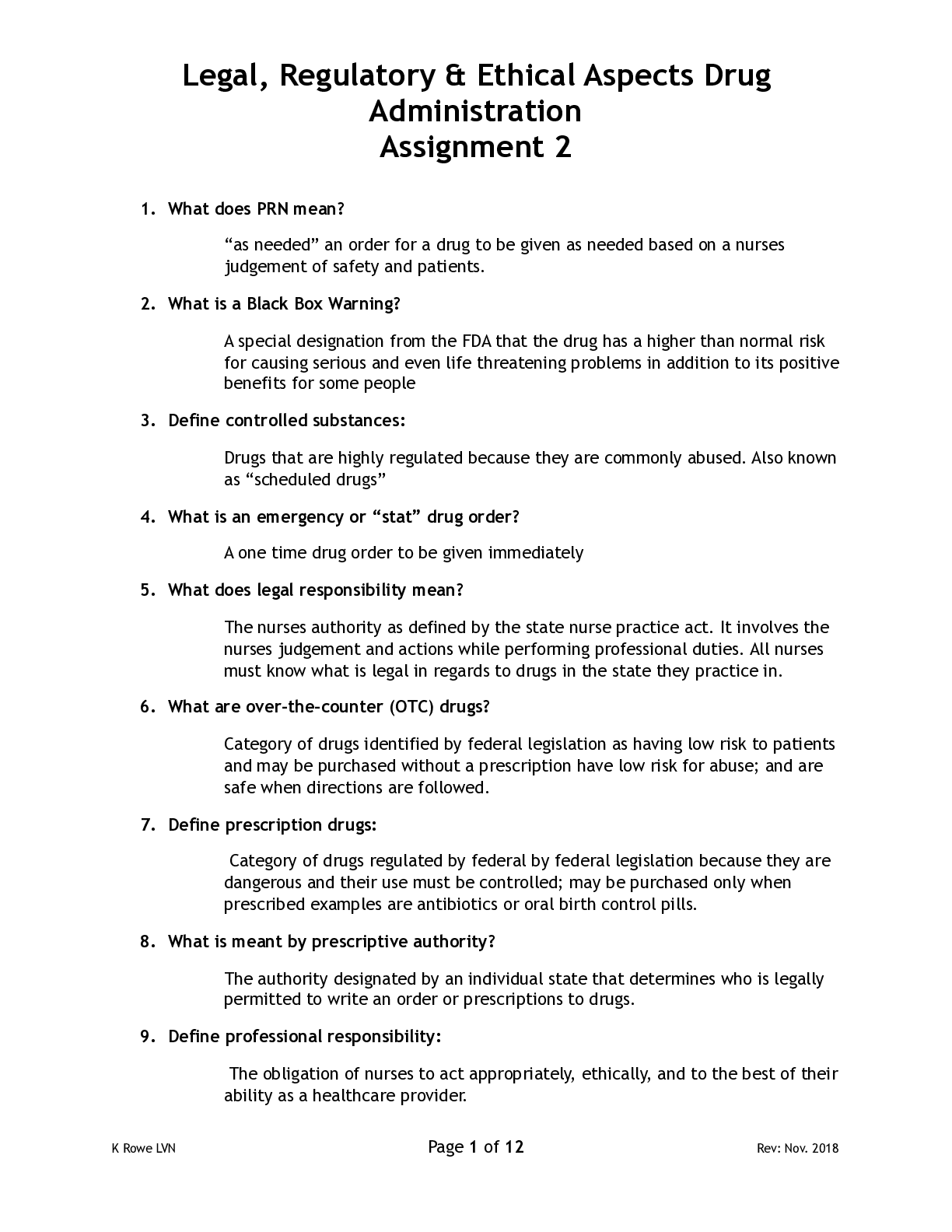
.png)

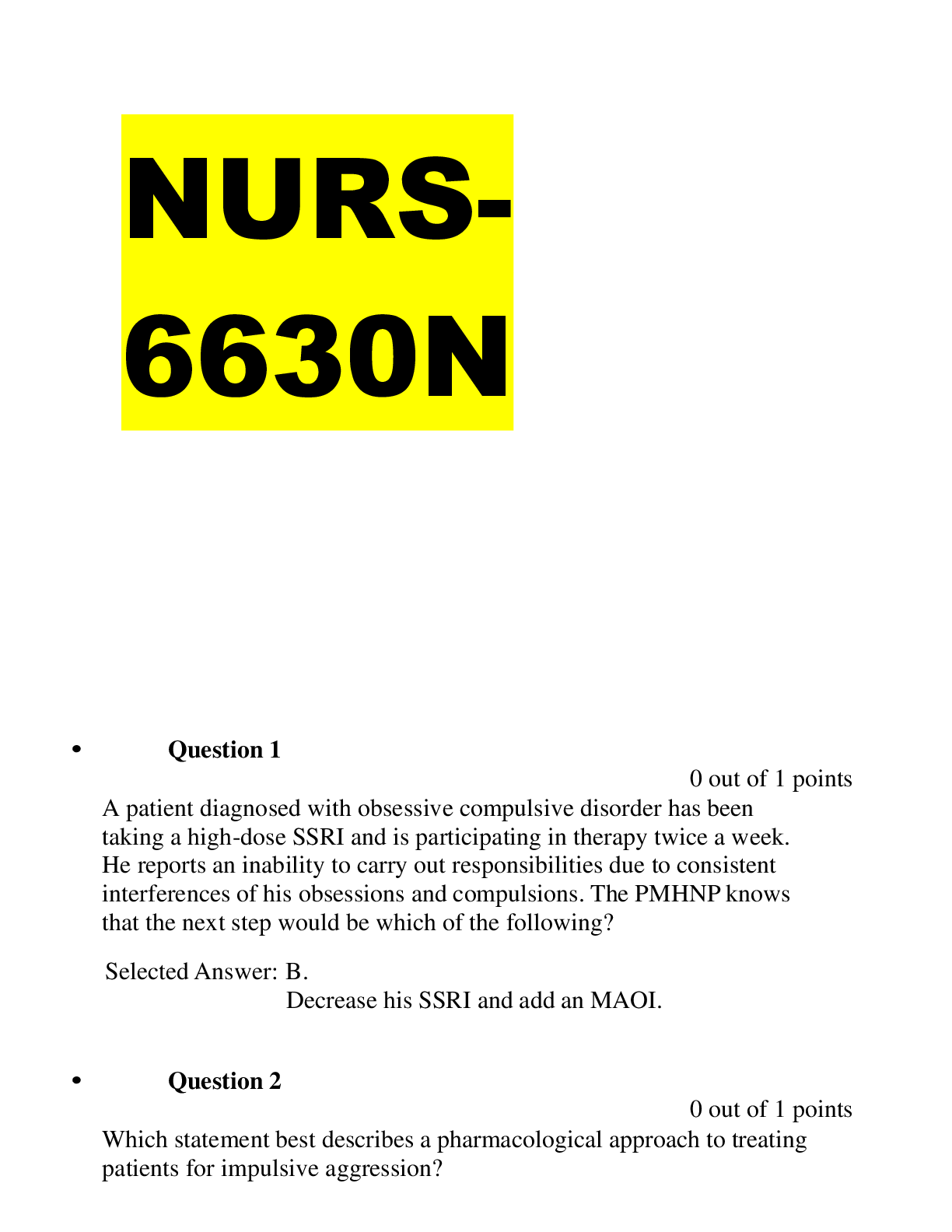
 WITH VERIFIED AND CORRECT ANSWERS AND EXPLANATIONS.png)













